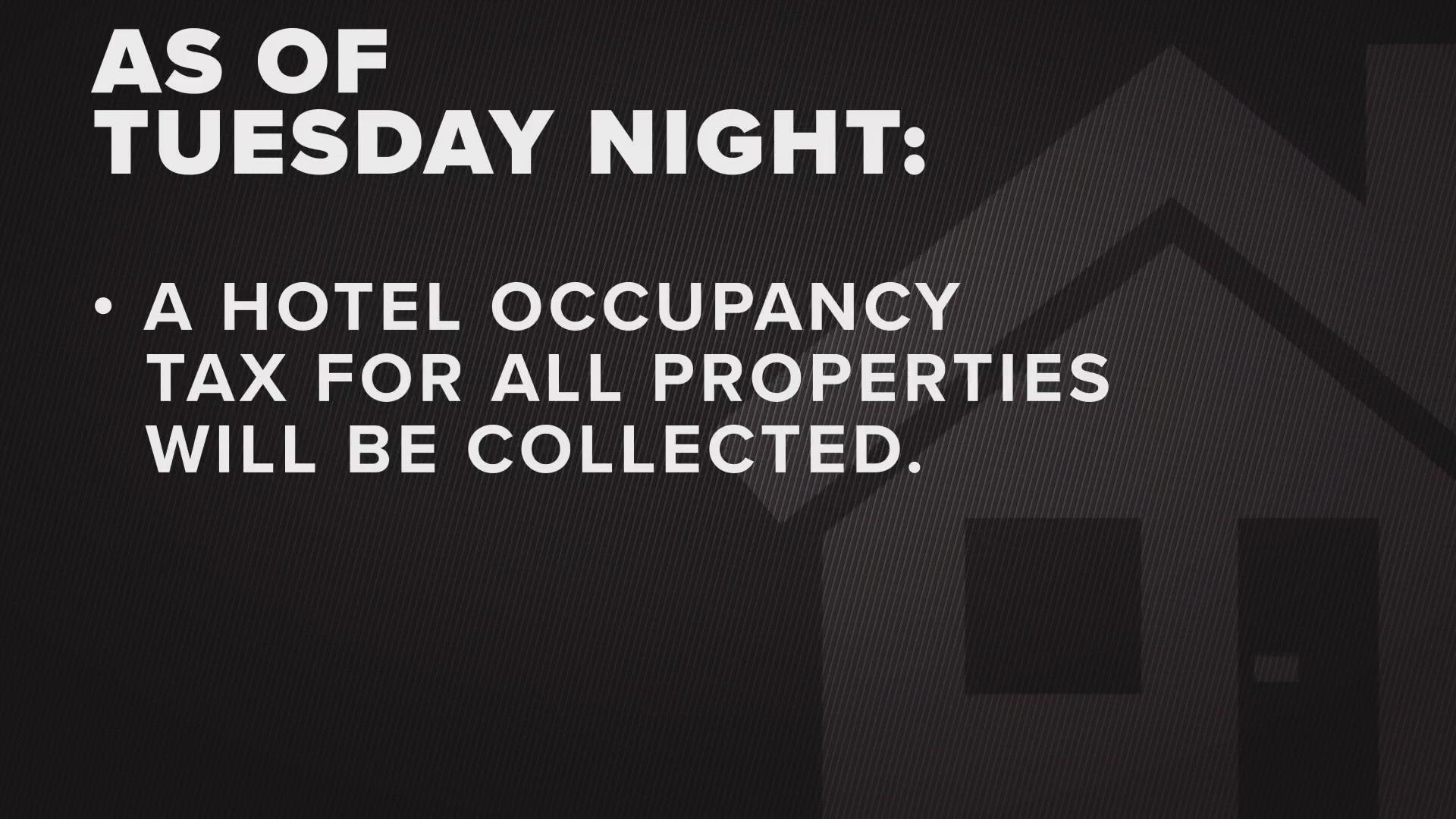FORT WORTH, Texas — Fort Worth city council members have unanimously passed a new ordinance aimed at short-term rental properties. The decision came during a meeting on Tuesday night.
The new rules include: no events or parties at the properties, hosts will have to pay an initial $150 registration fee and renew each year for $100, and the city will start collecting a hotel occupancy tax from short-term rental owners.
The new standards and requirements go into effect immediately. The registration deadline for all short-term rental properties is June 1, 2023.
The council said city code compliance officers will enforce the rules for short-term rentals. The city also plans to contact short-term rental property owners about the next steps they need to take for registration.
Some short-term rental property owners spoke to WFAA ahead of Tuesday night's meeting about the ordinance.
Susan Harper, who had been a landlord for two years, decided to get into the short-term rental business. Now, she and her husband are making ends meet a lot easier.
Harper said, "I need it to replace the income that I thought we were going to have that we don't have. So that was why I went from being a regular rental to an Airbnb rental."
As an Airbnb host, Harper had planned to address Fort Worth city council members about their new ordinance.
"I would like to see the city create a task force with people from both sides of the question," Harper said.
Trina Parkin started her first Airbnb three years ago. She enjoys providing families the options outside of a hotel stay.
Since she completed upgrades at her Airbnb with amenities, she is now a super host. Her Airbnb is in an upscale neighborhood in north Fort Worth.
Parkin screens her guests thoroughly on top of the requirements already set by Airbnb itself, which regulates guests who are all pre-screened and pre-registered with reviews about their stays from other hosts.
Parkin's goal is to make each guest feel at home.
"They want to feel safe and they want to respect their neighbors," said Parkin. "And so a big selling point for me is that we can stay together as a family and we can experience traveling as a family."
While some oppose short-term rentals, saying they're a nuisance to the neighborhood, Parkin believes communities and neighborhoods benefit from the service they offer.
"We're not just bringing in income for the community through tourism. That's one great thing. But we're helping to maintain these homes," said Parkin.
There's at least one thing in the new ordinance that some property owners disagree with.
"The hotel tax, I think it should be slightly different for an Airbnb because we don't provide the same things that hotels do," said Parker.
After the council's vote, Parker said she planned to address the city leaders. In the past, she's taken a backseat, but now she believes council members need to know more about the people behind the scenes of short-term stays.
"I'm counting to some degree on what I sent them two weeks ago for them to know my story," said Parker. "I truly do believe that that travel has changed for Americans. I think more people are traveling now because of Airbnb and quite frankly, they're spending money in Fort Worth."
The full list of changes includes:
- Short-term rentals where allowed by zoning to register.
- An annual registration and fee: $150 for the initial year and $100 per year for renewals.
- Registrations would be nontransferable.
- Collection of hotel occupancy tax for the property.
- Minimum stay is one night.
- A local responsible party must be available 24/7 to respond to concerns at the property. The local responsible party may be the property owner or an operator working on behalf of the owner.
- No more than one group would be allowed to inhabit the property at a time.
- Rentals would be limited to two persons per bedroom, plus two additional persons, with a maximum of 12 people staying in the property at one time.
- Only on-premise parking would be allowed.
- No events or parties would be allowed.
- The host would be required to provide instructions to comply with noise, trash, parking and curfew ordinances.
- Advertising and operation of short-term rentals without registration would be prohibited.
- Registration may be revoked based on violations.
The city also found while it was putting together these standards and requirements that just 68 short-term rentals are legally operating where they're supposed to in Cowtown.
In the city, short-term rentals are only allowed in specific areas that are zoned for them like commercial or industrial areas as well as mixed-use areas that include both commercial properties and residential properties.
Short-term rentals aren't allowed in areas that are zoned solely for residential use.
The city found that 565 short-term rentals are currently not operating where they're supposed to.
The new rules and regulations are just for short-term rentals that are operating legally. The ones not in the correct zoning areas will face different consequences for zoning violations.

